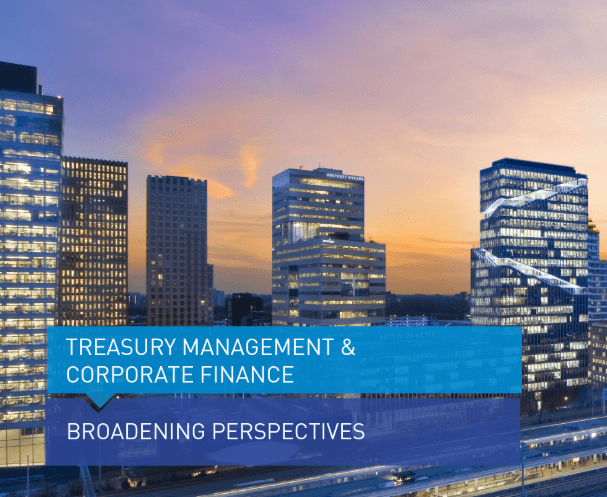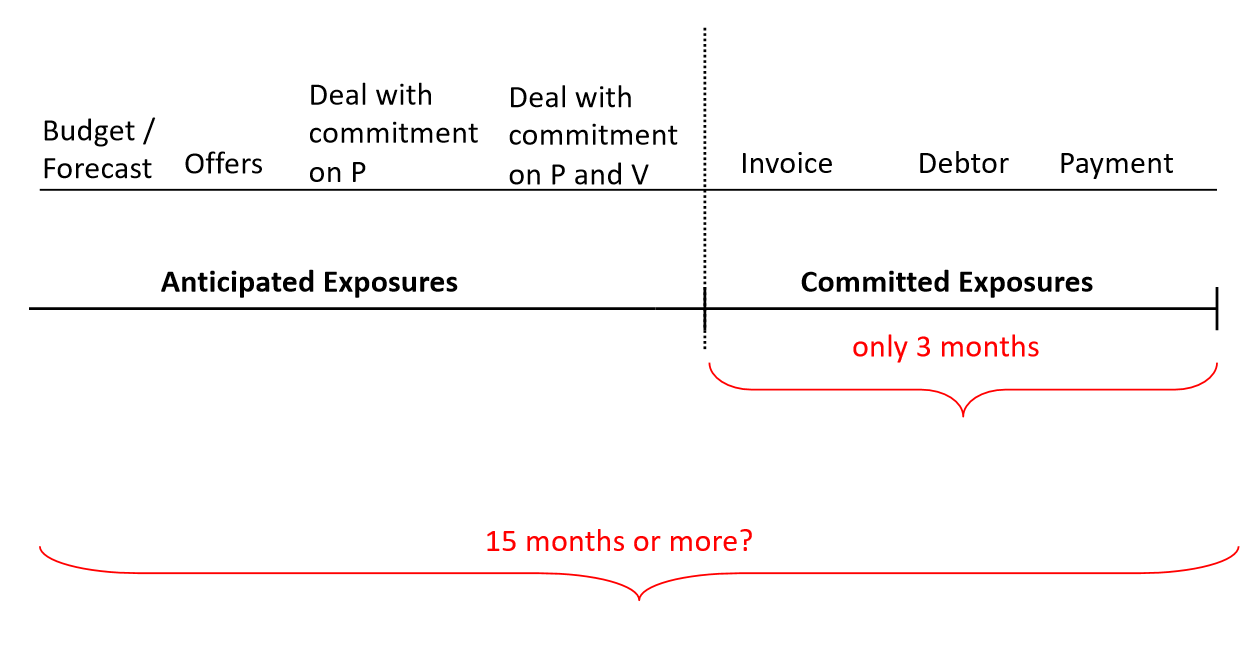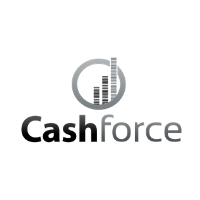Start your International Treasury Management and Corporate Finance course in September 2020
29-5-2020 | by Kendra Keydeniers | Francois De Witte | ATEL
The treasurer is the custodian of the company’s daily liquidity. He manages, anticipates and secures cash flows by ensuring that financial needs are covered.
This cursus will give the ability to assist directly and practically the treasurer of large corporates or to take over the treasury responsibilities in a SME.
The various modules will allow acquiring an in-depth knowledge of the various areas of the “Corporate Treasure” profession.
Registration
This course will start late September 2020. It includes 13 training modules and 5 intermediary exams. It is necessary to complete this form before your official registration. Registration will be closed early September 2020.
Objectives
At the end of this programme, the participant will able to:
- assist directly and practically the treasurer of large corporates
- take over treasury responsibilities in a SME.
The various modules will allow to acquire an in-depth knowledge of the various areas of the “Corporate Treasurer” profession.
Programme
Module 0: Introduction to Treasury Management
Speaker: Benjamin Defays / Treasury Manager
- Corporate Treasurer’s responsibilities
- Cash management (bank account opening, closing, KYC, Cash pooling, Payments and bank connectivity)
- Liquidity management (importance of working capital management,
- Risk management (foreign exchange, fraud, credit risk)
- Trade finance (general context, intro to bank guarantees and letters of credit)
Module 1: Financial Maths (Focus on treasury & corporate finance)
Speaker: Hugues Pirotte / Professor of Finance at Solvay Brussels School
- Focus on treasury & corporate finance
- Time Value of Money
- Vocabulary
- Compounding intervals
- Discount and annuity factors
Module 2: Advanced Excel workshop for treasurers (Dedicated to treasury)
Speaker: Hugues Pirotte / Professor of Finance at Solvay Brussels School
Module 3: Corporate Finance
Speaker: Mikael Pereira / Associate, Finance
- Valuations
-
- M&A’s
- Portfolios
- Corporate Financing
- Corporate Investments
Module 4: Cash Management (domestic and international)
Speaker François De Witte / Consultant
- Payments (Process, Tools)
- Liquidity Management
- Cash-Flow Forecasting
- In-House Banking
- Banking Relationship
Module 5: Trade Finance
Speaker: Benjamin Defays / Treasury Manager
- General contact, cultural aspects
- Why trade finance in treasury
- Bank Guarantees, Burgschafts, Surety Bonds, Letters of Credit, Cash against Documents
- Alterative security instruments
- Disruptive technologies
Module 6: Credit Control
Speaker: Anca Vasiliu / Counterparty Risk Manager
- Concepts & Practices/Types of Credit Risks
- Understanding Financial Statements and Ratios
- Credit Scoring/Ratings – S&P, Bloomberg models
- Collecting overdue receivables – setting priorities
- Strategies dealing with overdue invoices
- Debt collection services development
Module 7: Pension / Insurance
- General introduction on insurances and pensions
- Typology of insurances
- Risk management via insurances
- Saving via insurances
Module 8: Compliance
- KYC, GDPR, EMIR, Bale III
- International sanctions and their impact on transactions & overall business activities
- Anticorruption (FCPA, UK Bribery Act)
- EU competition law compliance
- INCOTERMS
- Drafting a contract (main considerations)
Module 9: Risk Management
Speaker: Patrick Verspecht / Group Treasurer
- FX, Interests
- Counterparties
- Others (Reputation, etc…)
Module 10: Regulations / Accounting
Speaker: Quentin Bodart / Senior Finance Engineer
- Emir, Mifid 2, Basle II and III,
- Dodd Frank, GDPR, Fatca, Section 385…
Module 11: Treasury Accounting
Speaker: Quentin Bodart / Senior Finance Engineer
- Accounting for Derivatives
- Hedge Accounting, IFRS9 (all from a treasury side)
Module 12: Technologies
Speaker: Patrick Verspecht / Group Treasurer
- New Technologies
-
- Blockchain, Crypto-currencies, Smart Contracts
- Treasury Console (Bloomberg, Thomson Reuters)
- TMS, Fintechs
Module 13: Cyber Fraud
- Why Cyber fraud needs to be considered as a major risk
- Identify the consequences of a cyberattack
- Main fraud schemes
- How to protect against fraud
Some homework might be proposed for some modules, there will be continuous control in the form of intermediary exams (under the form of QCM) and a final exam will be sanctioned by an attestation delivered by ATEL (The Luxembourg Association of Corporate Treasurers).
There might also be one or two “extra-activity”, such as a visit in a bank trading room or/and a special guest speaker addressing the cursus participants on a specific subject (still to be defined, optional events).
Target Audience
Anyone willing to acquire an in-depth knowledge in corporate treasury and wishing to exercise this knowledge in practice.
Prerequisites
- Basic background in finance or accounting
- For the Advanced Excel workshop, a preliminary (good) knowledge in Excel is required
Course Material
The course material can be downloaded free of charge via your portal the day before the start of the course (download the Client Portal User’s Guide here).
Certificate
At the end of the programme, the participants will receive a “Certificate of Attendance” delivered by the House of Training, and an attestation of “Exam Success Pass” delivered by ATEL.
In order to get certified, an 80% rate of attendance and a 60% average score on the examinations are required.
The participants will also receive a one-year free membership to ATEL (www.atel.lu) giving a number of advantages.
Register here










 ILFA Group
ILFA Group








 François de Witte
François de Witte



